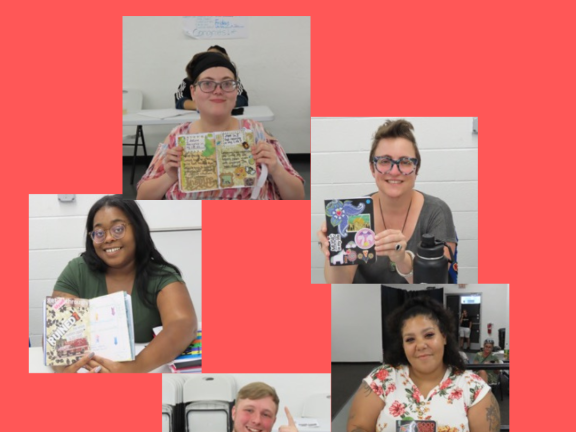Peer Supported Wellness & Recovery: A Correspondence Course

This course is for anyone interested in taking action to enhance their wellness and recovery and make positive changes in their lifestyle. This is an experience of strengthening one's self-efficacy and creativity with the guided support of a Copeland Center-certified peer supporter.
Divided into six lessons with reading assignments, projects, activities, and discussion with a Copeland Center-trained peer facilitator, the Correspondence Course takes you through wellness and recovery topics, peer support, trauma, lifestyle issues, advanced directives, and reflection on your own recovery journey. The course instructor is an experienced recovery educator and certified peer specialist who will support you in using your own creativity to explore, develop, and discover personal strategies to foster greater well-being in your life.
As an outcome of this course, participants will be able:
1) Identify how to take action for their wellness and recovery despite life challenges
2) Apply individualized action plans for prevention and whole health recovery.
You can expect to spend four to five hours per week for six weeks reading and completing assignments. You may complete the course at your own pace for up to 12 months.
In areas where several people have taken the Correspondence Course, some participants met together, usually weekly, to discuss and work on assignments together. We encourage you to consider this option. The Correspondence Course is an excellent way to prepare to become a facilitator with others in peer support, wellness, and recovery.
| Lesson 1 | Study of underlying recovery concepts, including hope, self-determination, empowerment, education, self-advocacy, and building support (peer, family, professional, community). |
| Lesson 2 | Language has great power. It can stigmatize or uplift. Awareness of the language we use will promote the use of language that reduces stigma and promotes wellness and recovery. |
| Lesson 3 | Explore the use of various simple, safe, self-help wellness tools that people who experience mental health difficulties have found to be useful in temporarily relieving their symptoms and maintaining wellness including peer counseling, focusing exercises, relaxation, and stress reduction exercises. |
| Lesson 4 | Develop action plans that include a daily maintenance plan, identifying and responding to triggers, identifying and responding to early warning signs, identifying those symptoms that indicate the situation has worsened and responding to those symptoms to successfully relieve them, and writing an advance directive and a post-crisis plan. |
| Lesson 5 | Explore specific issues that affect wellness, including changing negative to positive thoughts, building self-esteem, suicide prevention, reducing the effects of trauma, journaling, diversionary activities, exercises, sleep, and developing a lifestyle that enhances wellness. |
| Lesson 6 | The course concludes with reflection and discussion of your perception of recovery and whether or not it changed after reading the material and doing the assignments and exercises related to the course. |
Due to the evolving participation in Correspondence Courses worldwide, all new enrollments will have up to 12 months to complete coursework. After two years, if work is not completed participants may apply for an extension. Extensions may require an additional fee of $50 unless extenuating circumstances apply. All extensions will be reviewed and approved by the facilitator. Thank you for your interest in wellness and recovery with the Copeland Center.
Registration fee $300.00
This fee includes all materials.
If you would like to make arrangements to register multiple participants at one time, please contact: [email protected] or 802-254-5335.
Payment Policy
We will send course information and assignments once we have received your registration information and payment. There are no refunds available for this course.